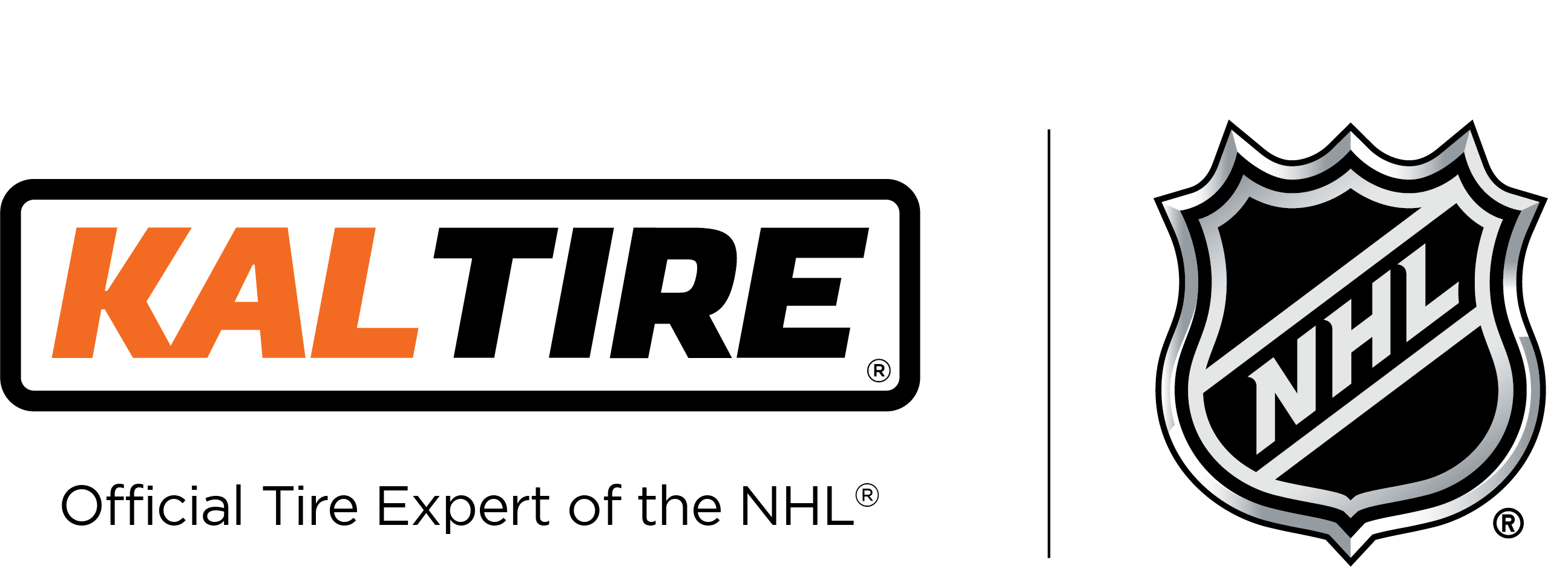About The Tests
Tire tests to ensure you get the perfect tire for your vehicle.
Real-life Driving Situations
Tires must perform in real-life situations. You deserve the confidence that the tires you buy can match the driving situations you encounter on a regular basis.
So, that's how all tests in Kal's Tire Testing were designed - only test real-life Canadian driving situations that could easily be encountered. From cornering on icy roads to driving on dry pavement, we have the tests to help you find the right tire for your needs.
Braking
In the braking distance test, a vehicle approached a marked line at a consistent speed and braking distance was measured in metres.

Summer Testing vs. Winter Testing
We varied our approach speeds by driving surface and by season for two reasons. First, this represents how most Canadians would normally drive on that surface in each season. Second, testing in both seasons provides an indication of how a tire's performance will be affected by road temperature.
| Test Condition | Summer (km/h) | Winter (km/h) |
|---|---|---|
| Dry | 100 | 90 |
| Wet | 100 | 70 |
| Snow | N/A | 50 |
| Ice | N/A | 30 |
Cornering
The cornering test demonstrates the lateral traction capabilities of the tire over a range of surfaces from dry to icy pavement, in both summer and winter. To test cornering performance, a vehicle was driven in a radius circle and speed was slowly and progressively increased until the tire could no longer hold the corner and would lose traction.

Summer Testing vs. Winter Testing
To understand how road surface temperatures affect the cornering performance of a tire, our cornering tests are completed in both summer conditions (dry and wet pavement) and winter conditions (dry, wet and icy pavement).
Hydroplane Resistance
Hydroplane resistance was measured with repeated runs through a puddle that was maintained at a 4 cm depth. Starting at 80 km per hour, the speed of the vehicle was increased in 5 km per hour increments over repeated runs until the point where the tires lost traction or the vehicle reached 100 km per hour.

Summer Testing vs. Winter Testing
How a tire resists hydroplaning can be significantly influenced by the temperature of the standing water and the road surface. Consistent with our goal of testing tires in the most common Canadian driving conditions, we also test hydroplane resistance in both summer and winter.
real-life driving Conditions
Kal Tire hired an independent tire testing group to find real-life driving conditions that Canadians face year-round. No hockey arenas or professional test tracks were used for testing the tires. We wanted the tires tested in Canada, in conditions we knew you would be driving in.
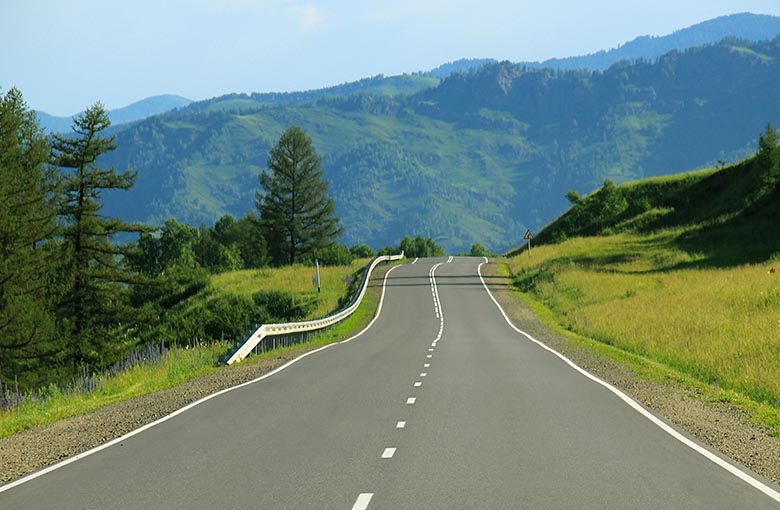
Hot Highways
Warm and dry late spring day.
Dry, hot pavement with cracks in tar and undulations served as normal Canadian summer highways.
Wet and Dry Braking; Wet and Dry Cornering
Summer
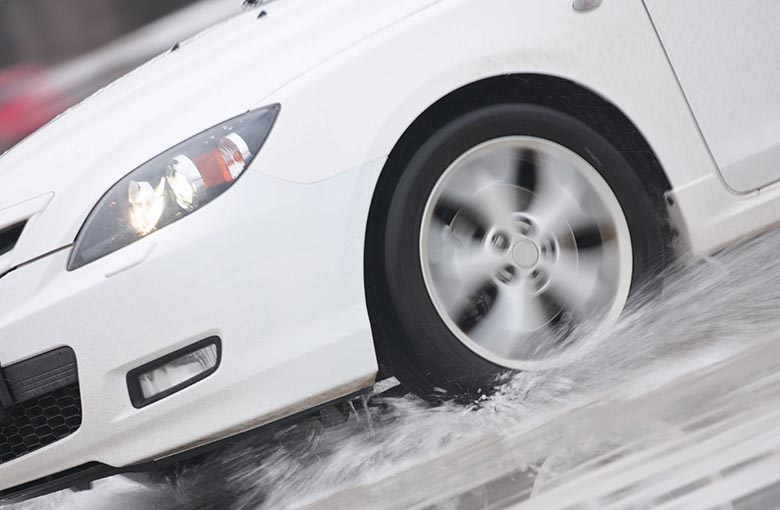
Highway Puddles
Weather conditions were mainly sunny with some overcast cloud cover throughout the day.
Wet conditions, along with the help of a water truck, created the kind of highway puddles and hydroplane conditions drivers face when they hit road ruts on a cold and rainy day.
Hydroplane Resistance, Wet Braking, Wet Cornering
Winter, Summer
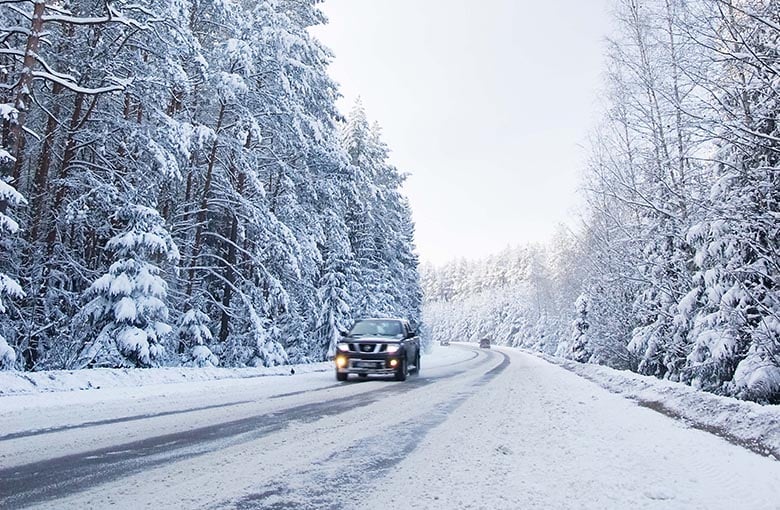
Rough Winter Highway
Weather conditions were mainly sunny with some overcast cloud cover throughout the day.
Dry, cold pavement, with cracks in the tar and undulations as well as uphill and downhill stretches. An airport runway simulated a rough highway surface ideal for testing dry braking conditions in the cold.
Dry Braking and Cornering
Winter
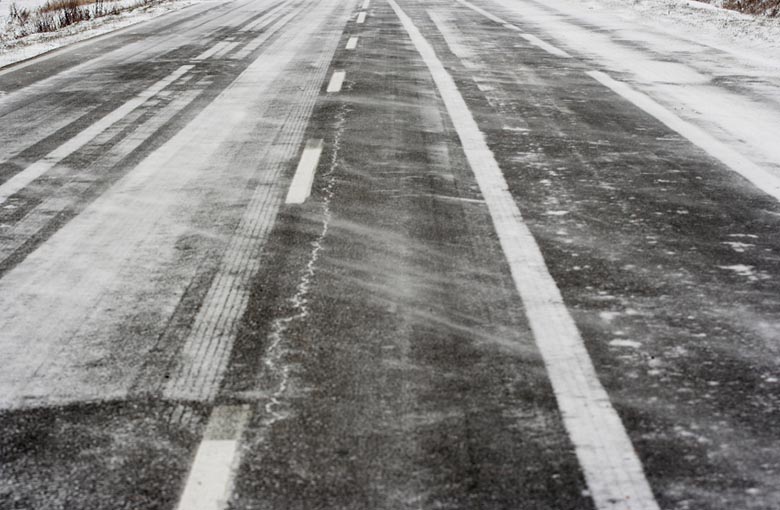
Slick Intersections and Black Ice
Winter testing was conducted in early morning and evening to avoid the influence of sun on the frozen lakes.
Slippery compact snow on a frozen lake mimicked icy road conditions. Pure ice on a second frozen lake mimicked slick icy intersections and patches of black ice.
Ice Braking and Cornering
Winter
Compare Testing Results
When shopping on KalTire.com, compare tire testing results to find the tire that performs the best for the conditions that matter the most to you.
Shop Tires
